What is mastering anyway?
Mastering is the final stage in music production, combining quality control, refinement, enhancement and technical preparation for release. Whether for streaming, CDs, or vinyl, mastering is a chance to have a skilled and experienced engineer listen to your work in an accurate and revealing monitoring environment. The goal is to enhance or preserve the presentation of your mixes and ensure that the highest level of quality is passed along to the final release medium.
How do I prepare my tracks for mastering?
For digital files (WAV, AIFF), we mostly just ask that you submit clearly-labeled files at the sample rate you mixed at and 24 bits or higher. It’s best to avoid loudness-limiters on the final output/mix and, for levels, to simply avoid clipping. If it turns out you were using a limiter and bypassing it reveals your mix is clipping, reducing your master fader in your DAW is the way to fix that. Any amount of headroom below clipping is fine.
If you are sending analog tapes, make sure they’re well-labeled, leadered, and have at least 1kHz, 10kHz and 100Hz tones. Also, please give us a heads up and tracking info for your shipment!
How do I submit my tracks?
You can upload them to: https://sonopod.wetransfer.com
What is your turnaround time?
How much money ya got? We kid. It all depends! Sometimes we may be able to start on your project that very same day! At other times, we may have a backlog. On average, we manage a queue of around 2 weeks. If you have a pressing deadline, please let us know; we can usually shuffle things to accommodate you.
What are ISRC codes?
ISRC codes are sort of like serial numbers for each track on a release. The RIAA provides what’s called a “registrant code” to whomever applies to have one. This code is then combined with a country of origin code, year of reference, and a user-definable five-digit number to make up the entire ISRC code identifying each track.
Ordinarily, the record label is the ISRC registrant. They specify the ISRC codes and provide them to the mastering engineer. Many independent artists have their own registrant code as well.
It’s not essential that you have them in the mastering stage, but you’re likely going to need them at some point in your release plans. It’s very easy for us to embed them into the master files while we have them here. If you’re working with a label, distributor, replicator, or aggregator who provides ISRCs, they can give you a sequence of codes to use. Or, .if you have not yet received a registrant code and want one, it’s a simple process. Just go to the RIAA’s site usisrc.org to register. They provide a reasonable one-time fee and you can use the registrant code they give you in perpetuity for any current or future releases.
Do you master for vinyl?
Although we do not cut lacquers on-premises, we do provide pre-master files that can be sent to any lacquer-cutting engineer. We’re also happy to refer you to some excellent cutting engineers, if needed.
Do you master from stems?
Yeah, but that’s a pretty different process. Let’s talk it over first.
What is Apple Digital Masters (ADM)?
Apple Digital Masters is the new name for … well…“the artist formerly known as ‘Mastered for iTunes’”. This was, and is, a set of specifications, guidelines, and quality control tools ensuring that your release sounds as good as it can through the codec process utilized by Apple Music. Sonopod is approved by Apple as a studio to provide ADM-badgeable releases on their platform if your distributor/label or aggregator have an ADM release arrangement
Do you mix tracks as well as master them?
Sure! Contact us to discuss if you’d like to hire one of us as your mix engineer. We also have some uber-talented mix wizard friends we’d be happy to refer you to.


